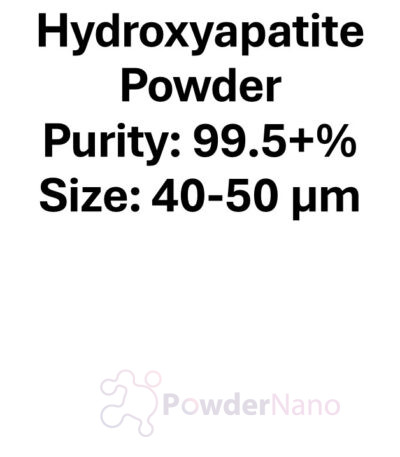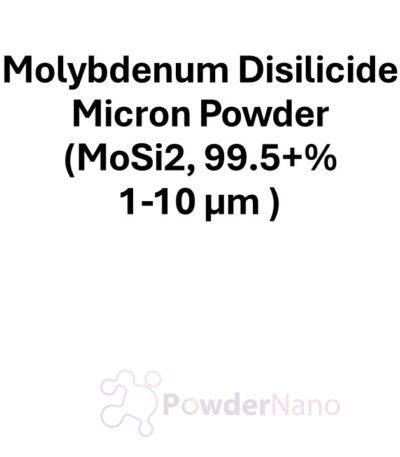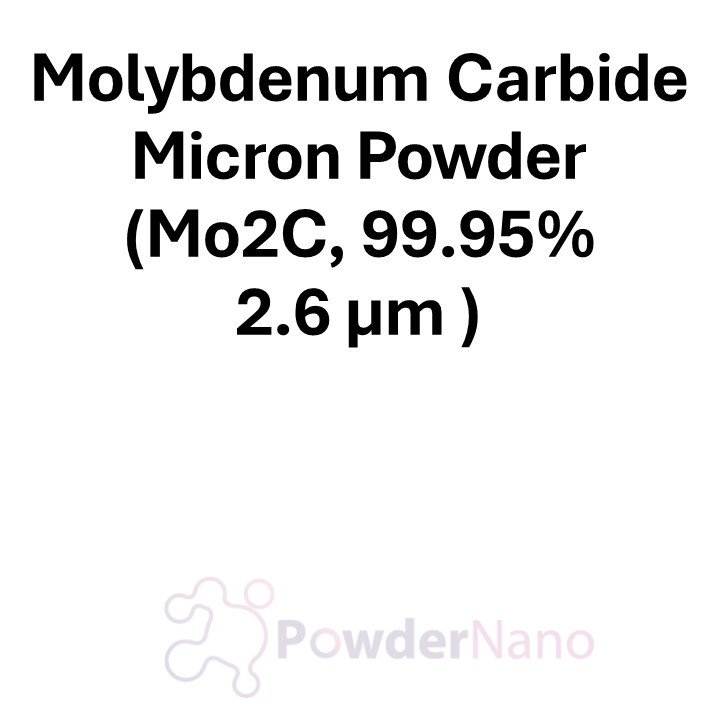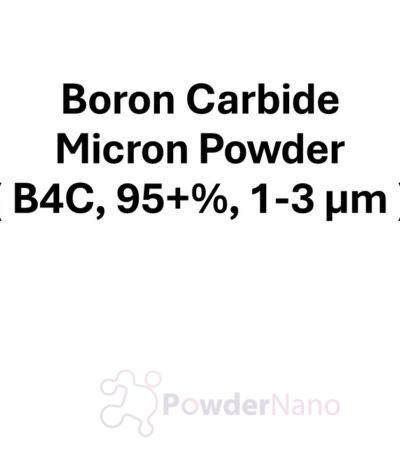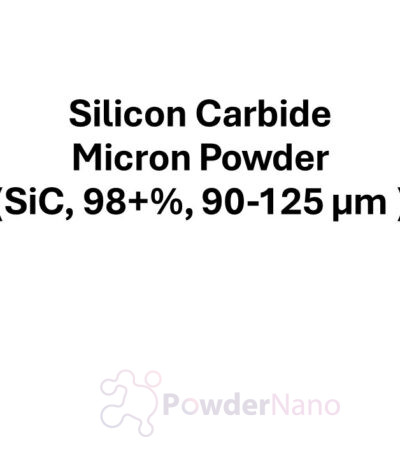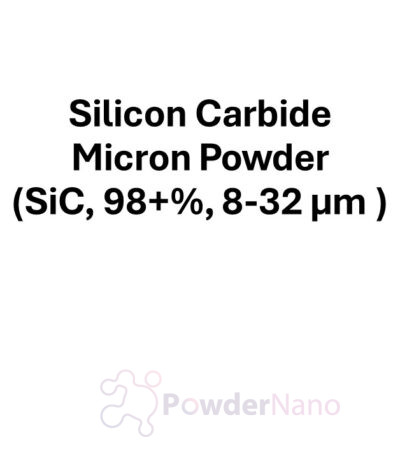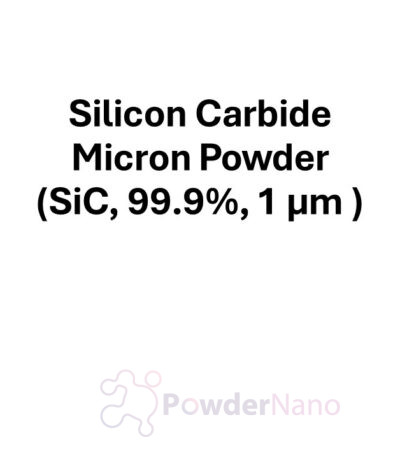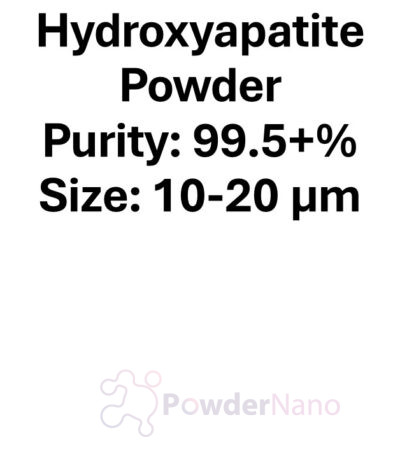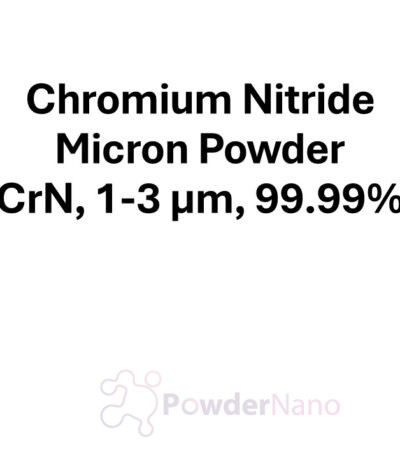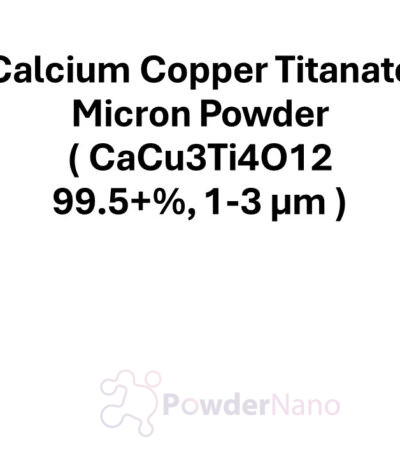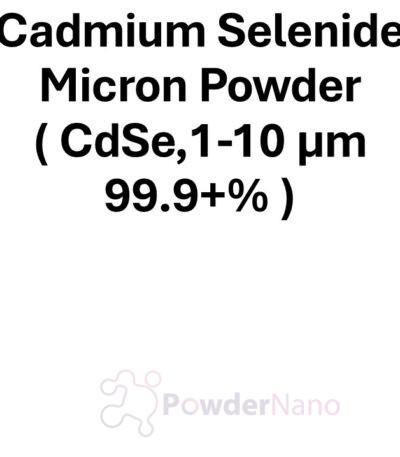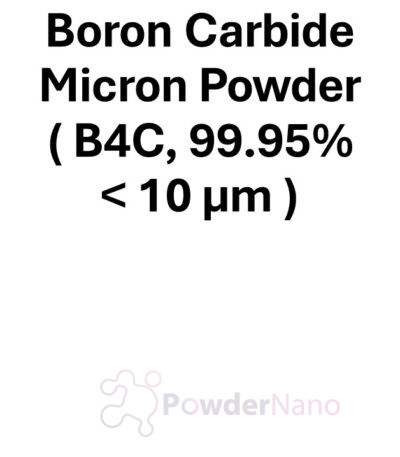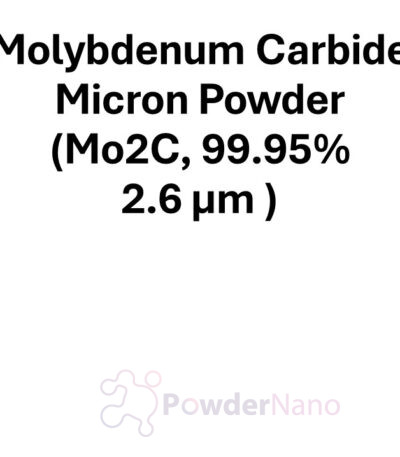Molybdenum Carbide Micron Powder (Mo₂C, 99.95%, 2.6 µm)
Technical Specifications:
- Material: Molybdenum Carbide (Mo₂C)
- Purity: 99.95% (high purity)
- Particle Size: 2.6 µm (microns)
- Shape: Typically irregular or angular, depending on the manufacturing process
- Density: Approximately 9.2 g/cm³
- Melting Point: Approximately 2,850°C (5,162°F)
- Boiling Point: Sublimes at around 3,500°C (6,332°F)
- Chemical Composition:
- Molybdenum (Mo): ~79.9%
- Carbon (C): ~20.1%
Applications:
- Hard Metal and Wear-Resistant Coatings:
- Molybdenum Carbide is widely used in the manufacturing of hard metals and wear-resistant coatings due to its extreme hardness and resistance to abrasion. The micron powder is used to create coatings for cutting tools, dies, drills, mining equipment, and machinery parts that require high wear resistance and long-lasting durability.
- The powder is incorporated into surface coatings for heavy-duty machinery and industrial applications that experience abrasion, erosion, or high temperatures.
- Cutting Tools and Tooling Materials:
- Molybdenum Carbide is used in the production of cutting tools such as drills, end mills, taps, and saws for industries requiring high-performance materials. The 2.6 µm powder size is used in powder metallurgy to create hard metal tools that offer high hardness, heat resistance, and sharpness.
- The material is ideal for metalworking, machining, and high-speed cutting applications in industries like automotive, aerospace, and machinery manufacturing.
- Catalysts for Chemical Reactions:
- Molybdenum Carbide has catalytic properties and is used as a catalyst or catalyst support in hydrogenation, dehydrogenation, and oxidation reactions. It plays a role in the refining of petroleum, natural gas processing, and the production of fine chemicals.
- The micron powder can be used to facilitate chemical reactions in petrochemical industries and fuel processing due to its high catalytic activity at elevated temperatures and pressures.
- Electrochemical Applications:
- Molybdenum Carbide is being explored for electrochemical applications, including fuel cells and batteries. It serves as a high-performance electrode material for devices that require efficient electron transfer and high conductivity.
- Mo₂C is particularly effective as a catalyst for hydrogen evolution reactions (HER), a crucial process in hydrogen production from water splitting.
- Electrical Contact Materials:
- Molybdenum Carbide is used in electrical contact materials due to its high conductivity and resistance to corrosion. It is incorporated into contact points in switches, relays, and electrical connectors where low contact resistance and reliability are required.
- The micron powder is often used in the manufacturing of high-performance electrical contacts for high-power switching devices in telecommunications and industrial equipment.
- High-Temperature Components:
- Due to its high melting point and thermal stability, Molybdenum Carbide is used in high-temperature components such as aerospace materials, rocket nozzles, furnace linings, and turbine blades. It maintains its structural integrity under extreme heat and is resistant to oxidation and corrosion at high temperatures.
- The 2.6 µm powder size is ideal for manufacturing ceramic composites and protective coatings used in extreme thermal environments.
- Wear-Resistant Components in Automotive:
- Molybdenum Carbide is used in automotive applications, particularly in engine components, valves, brake systems, and wear parts. The material’s hardness and resistance to friction make it ideal for high-stress automotive applications.
- Mo₂C powder is often used in composite materials or as a coating for automotive parts to improve durability and reduce wear over time.
- High-Performance Coatings for Tools and Aerospace:
- Molybdenum Carbide is used to create high-performance coatings for cutting tools, aerospace components, and machinery parts. The micron powder is applied as a coating to improve wear resistance, thermal conductivity, and oxidation resistance.
- Mo₂C coatings are particularly useful in aerospace industries for turbojet engine components, high-speed drills, and machine tools that experience extreme temperatures and abrasive environments.
- Superalloy Additive:
- Molybdenum Carbide is used as an additive in superalloys to improve their mechanical properties at high temperatures. These superalloys are used in aerospace, turbine manufacturing, and high-performance engineering applications that require strength, thermal stability, and resistance to wear at elevated temperatures.
- The micron powder helps improve the high-temperature hardness and resistance to thermal cycling in engine components and gas turbines.
- Research and Development:
- Molybdenum Carbide micron powder is widely used in research and development to explore new applications in materials science, catalysis, electrochemistry, and high-performance coatings. Researchers use Mo₂C powder to develop new advanced materials for use in energy systems, automotive, aerospace, and chemical processing industries.
- It is particularly useful in the development of high-performance composites, nanostructures, and catalyst systems for green energy technologies and high-efficiency industrial processes.
Molybdenum Carbide Micron Powder (Mo₂C, 99.95%, 2.6 µm) is a high-performance material with exceptional hardness, thermal stability, and electrical conductivity. It is widely used across industries such as aerospace, automotive, electronics, chemicals, and materials engineering. Its applications in catalysis, cutting tools, wear-resistant coatings, high-temperature components, and electrochemical systems make it essential for high-performance systems that require durability, efficiency, and resilience under extreme conditions. The micron powder form allows for precise integration into composites, coatings, and catalysts, enabling the development of next-generation materials for a wide range of cutting-edge technologies.
